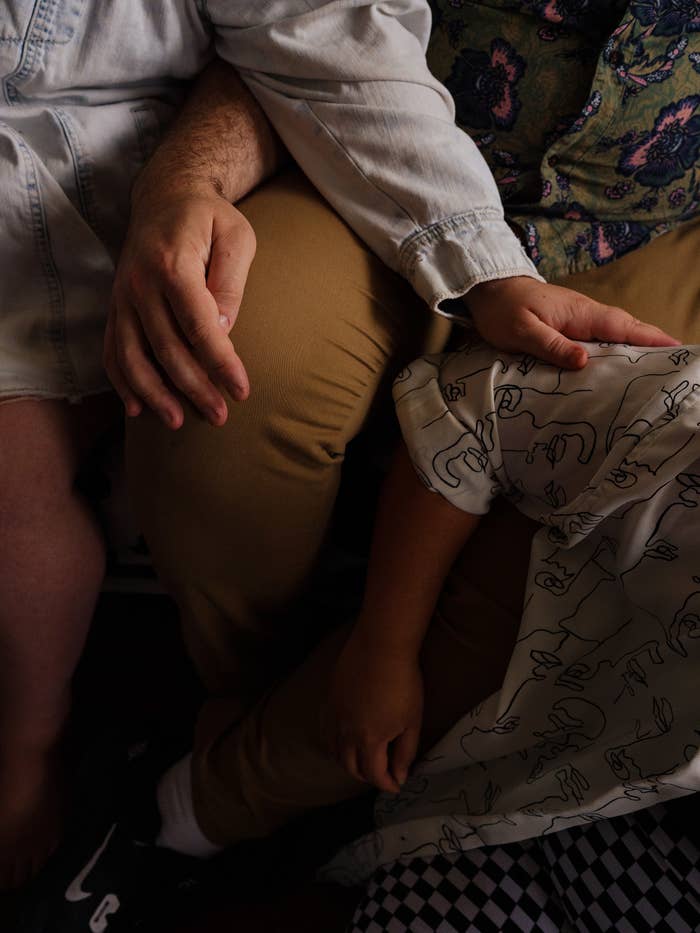
Daniel, 37, had some financial trouble when he was married. He and his then-wife shared their money, but they disagreed about how they ought to spend it.
“My wife would spend our money on just about any ad that came on her phone,” Daniel said. “Little things, big things — we never established more than a few hundred shared dollars before it would restart again at $0.”
After the marriage ended, Daniel felt like his future relationships would require heightened communication around money. Now he’s in a four-person polycule, and finances remain separate.
Daniel, who works for an education company, lives with his partner Helen, who works in medicine, in Cleveland, Ohio, and they have a child together. Daniel’s financial horror story with his ex-wife isn’t unique: “I think all of us have bad experiences with partners taking money out of a shared account, and none of us want to repeat that experience,” he added.
There’s no run-of-the-mill financial playbook for a polycule; just as the relationship structure itself is totally different for each individual iteration, so are the economics. In other words, there are a lot of ways to do things, and polyamory is fundamentally about a belief that One Size Doesn’t Fit All.
I used to fantasize about sharing a bank account with someone else. The idea of pooling financial resources struck me as kind of radically romantic. Your money and your partner’s money, would merge, a financial parallel to the emotional joining of personhoods. Until I was in my mid-20s, I imagined finding The One.
But I didn’t find The One; I found The Ones. I started exploring polyamory when I was 27 and I never looked back. Now, I’m married with a long-term boyfriend, a long-term girlfriend, and a daughter. I have more love in my life than my puny childhood imagination could compute. But my bank account remains my own, and that isn’t going to change any time soon.
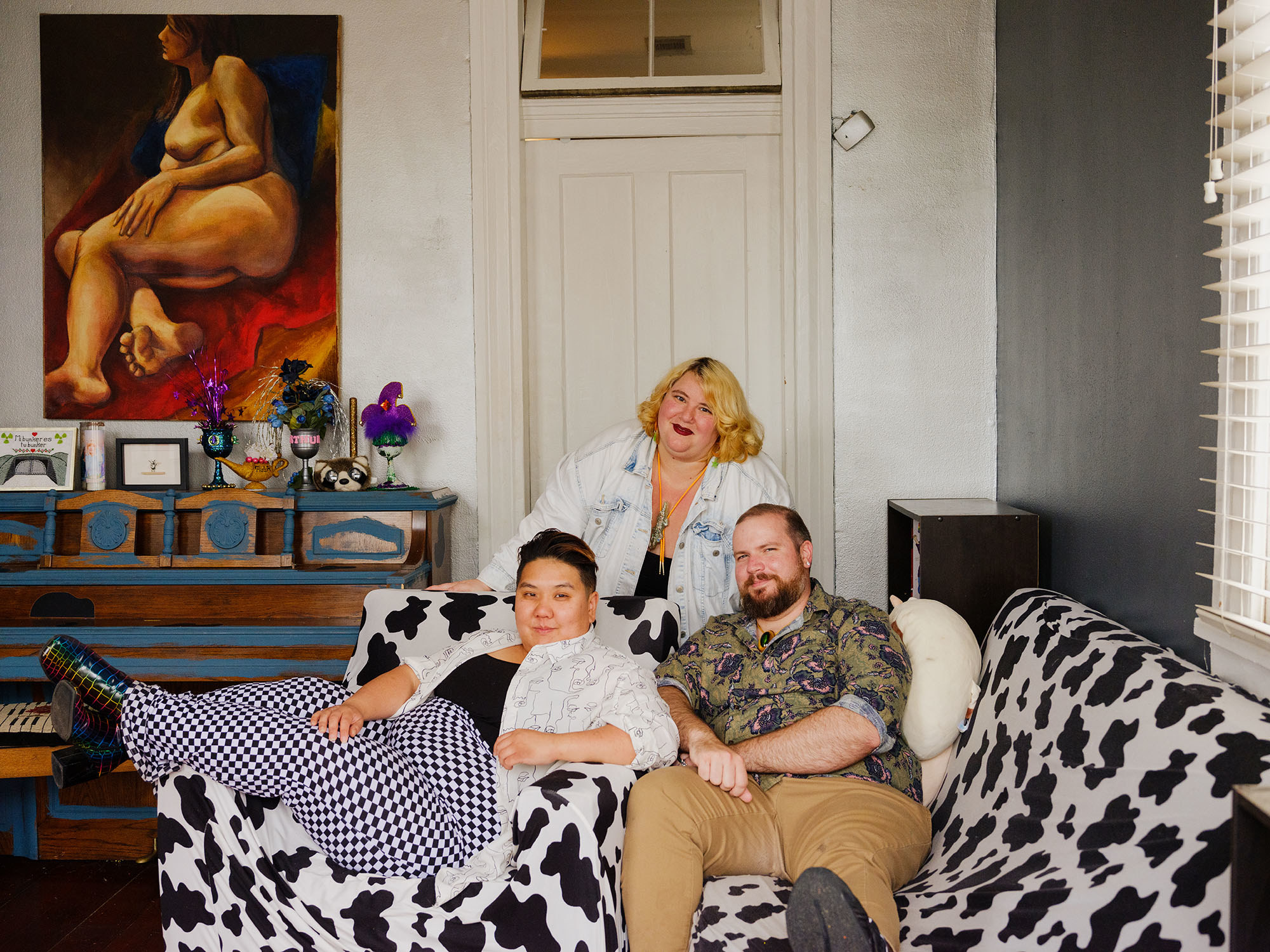
I interviewed members of 17 polycules about their finances (sometimes I spoke to an individual representative, and sometimes the whole group at once; some people preferred to talk on the phone, and others answered their questions via email), and the only common thread was that there wasn’t one. Some polycules share a bank account; some do things individually; some engage in a combination. (Many of the people I interviewed aren’t “out” as polyamorous, and requested that only their first names appear here, to protect their privacy.)
Millie, a writer, Nick, a healthcare consultant, and Cinthia, who preferred not to disclose her occupation, live in Toronto and they practice egalitarian polyamory, or polyamory without hierarchy, which they talk about on their social media account Decolonizing Love. Millie and Nick (who have been together for 12 years) share ownership of a house, while Cinthia and Nick (who have been together for two years) are working toward buying a house together. Nick alternates between living with Millie and Cinthia on a week-by-week basis. Millie and Nick have more shared expenses (like a mortgage and other homeownership bills), while Cinthia and Nick only share groceries.
Millie and Nick said that they’ve had disputes around what they called “nesting privilege” and homeownership. “People we’ve dated who were new to polyamory have felt secondary,” Millie said. Because she and Nick have combined finances and share a house together, other partners have sometimes felt like the two of them were the only “legitimate” couple, and that anyone outside that couple wasn’t as important. Millie told me that resolving these issues required patience and reassurance that other partners were just as important. Legal ties and financial entanglement can make some relationships feel more important than others — which is in direct conflict with the idea of a nonhierarchical relationship structure.
Others have found the poly lifestyle to be refreshingly free of financial conflict. Jade, 29, Daniel, 33, and Ami, 30, are in a triad and share a shotgun house in New Orleans together. Daniel, an educator, and Ami, an AmeriCorps service member, have been together for a decade, and have been ethically nonmonogamous since the second year of their relationship. Jade, an artist, started dating Daniel three and a half years ago. Ami and Jade started dating shortly thereafter. Jade and Daniel got married this past January.
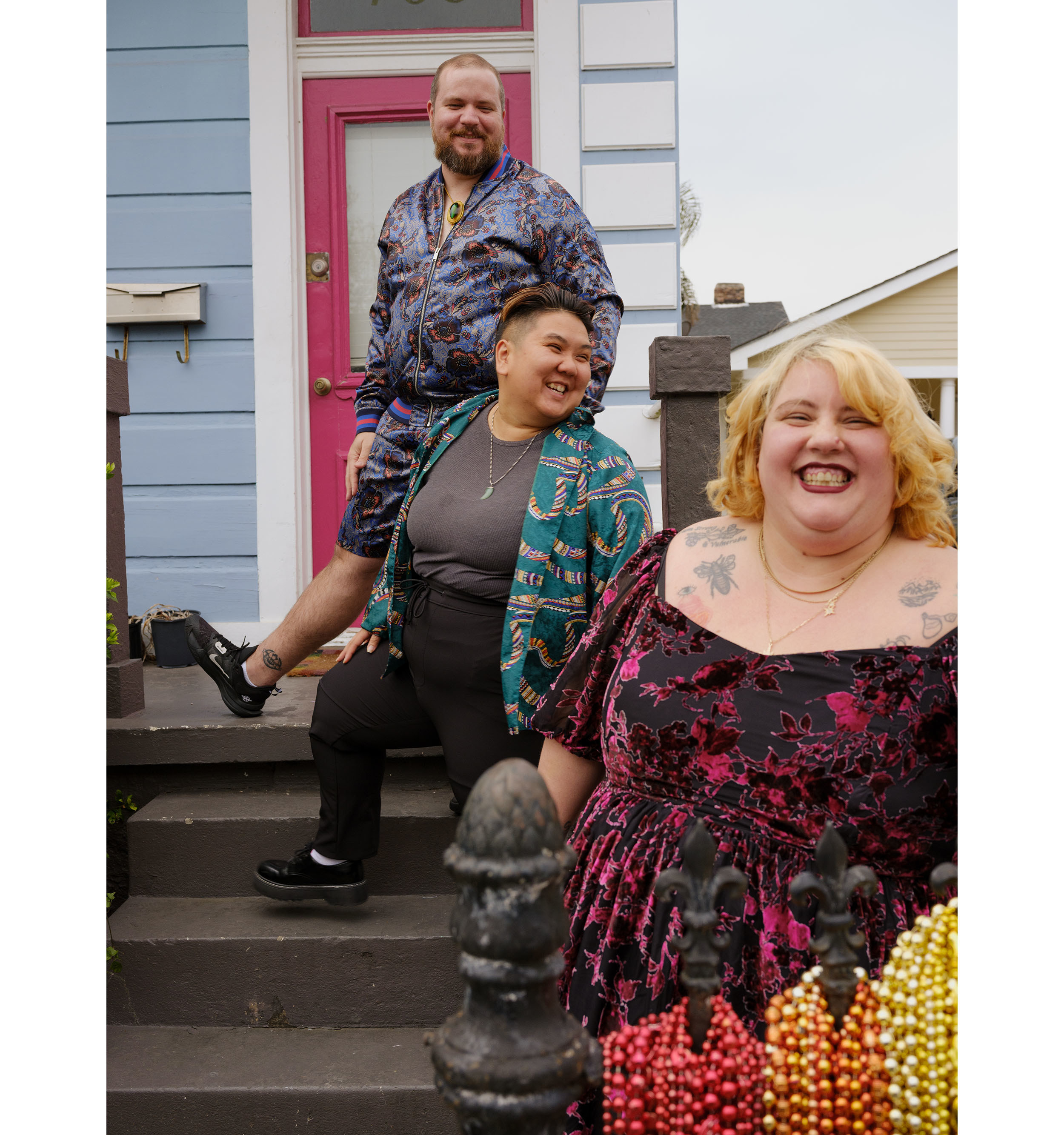
The three split their rent evenly and take care of their personal bills (like car payments, insurance, and school tuition) individually. Right now, Daniel’s job is the most lucrative, so he contributes a little more to shared resources like groceries and the power bill. “We haven’t had to have hard conversations about our finances as a house, because it's natural for us to take turns supporting each other when needed,” Daniel said.
For them, being in a polycule actually makes dealing with finances a little easier. “Having an extra working adult doesn’t mean that we are safe from the heavy weight of inflation, but it does give us a little extra room to breathe and a strong sense of security. I trust our family to take care of each other, and the privilege of that is undeniable,” Jade said.
Chaneé Jackson Kendall, a 35-year-old entrepreneur who lives in Atlanta, also named monetary privilege as being central to the discussion of polyamorous finances. “Thankfully we’re just not in a place where anybody is concerned about making ends meet. Because of that, we’re able to be relatively relaxed around finances,” she said. Kendall lives with her husband and another co-parent, who asked not to be named in this article, with their 8-year-old son in a house that they own. Kendall’s girlfriend lives nearby. While one parent’s income covers everything the household needs, all four people, who consider themselves all parents of the 8-year-old, split expenses relating to their son.
“Having an extra working adult doesn’t mean that we are safe from the heavy weight of inflation, but it does give us a little extra room to breathe and a strong sense of security.”
“While I acknowledge our privilege, I also wanna talk about the financial synergy that is involved in operating the way that we do,” Kendall said. She and her three partners are kitchen-table polyamorists, which means that everyone in the configuration knows everyone else in the configuration. Since Kendall’s polycule is relatively small, and everyone involved enjoys spending time together, dating is less expensive for them than it is for people who go on multiple one-on-one dates a week.
“There’s this interesting paradox in polyamory where it’s both a privilege to be polyamorous and also a privilege to not be polyamorous,” said Jessica Daylover, a 37-year-old writer who lives in Reno and is the cofounder of a website and Patreon called Remodeled Love. “Because in some ways, if you’re splitting the mortgage across four adults, that makes your life easier. But in other ways, if you need money to go date six different people in your city, and you can’t have guests at your house, so every date requires a restaurant and a hotel room, that requires some money.”
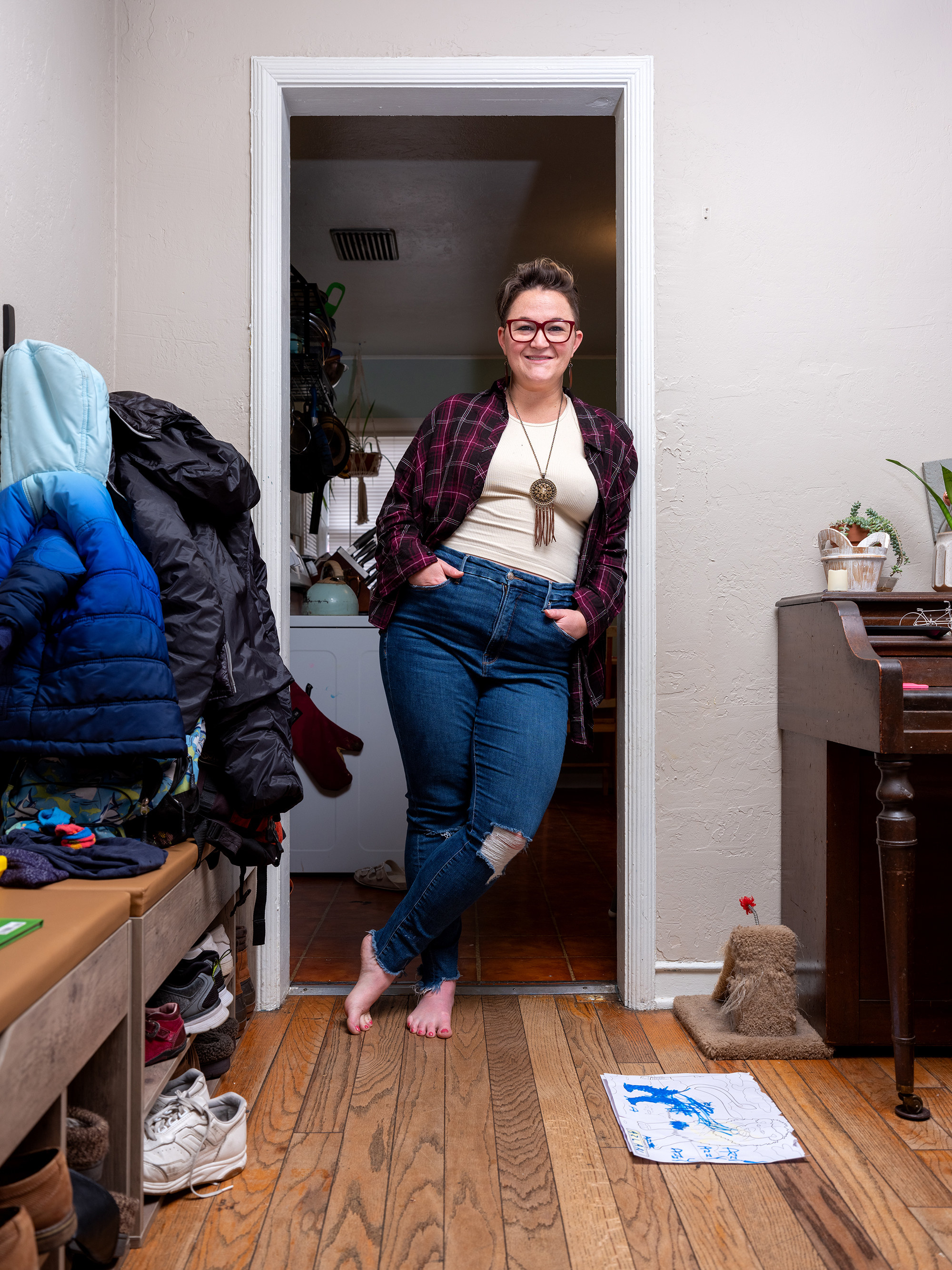
When a polycule is closed — like when three people are romantic with each other and only each other, finances can be relatively simple. Khaled, a software architect, Caitlin, a marine science and policy analyst, and Mills, a data analyst, all living in New Orleans, have been together for almost 12 years. They have four kids and have been living together almost since the beginning of their relationship. Mills entered the relationship nine years into Khaled and Caitlin’s marriage, and within a year, they all had combined their finances.
“I felt guilty at the beginning, because I came to the relationship with the most student loan debt, but they didn’t care about that,” Mills said. All expenses, including childcare, are shared and paid for from their combined accounts. There is no separation of assets or wealth.
“I felt guilty at the beginning, because I came to the relationship with the most student loan debt, but they didn’t care about that.”
Mills said that having three salaries has been great for everyone’s careers. It’s created a cushion for making big changes, like when Khaled started a tech company in 2016. The addition of a person to the typical monogamous structure has made more space for all parties to grow.
But most polyamorous people are in more complicated structures, which means more complicated finances. Laura Boyle is a relationship coach and the founder of Ready for Polyamory, a blog and podcast focused on the logistics of polyamorous relationships. She’s been gathering data on the ways polyamorous people cohabitate. She’s surveyed over 300 polyamorous people who live together, and she wanted to know whether polyamorous households shared finances.
Forty-one percent of the people she surveyed revealed that while some of the households had joint finances, others were separate. At least a little autonomy seems to be the norm. Boyle said that people’s reasons for sharing or not sharing finances varied, but often came down to ease. Creating new bank accounts and merging financial resources is a lot of work, and it can be simpler to take financial questions on a case-by-case basis.
That’s certainly how Daylover has historically done things in her polycule. She currently lives with her husband of 10 years and their two kids, ages 2 and 5. Her husband’s “anchor-partner-slash-soulmate” moved from Ohio to live with them only a few months ago, and Jessica has another “soul lover,” whom she called Dr. M, who “unofficially” lives with them too.

“I'm somebody who’s like, ‘Eh, we'll figure it out.’ And I just like to push it to the side, but I’ve had to force myself to be like, you know what, no, let’s get nitty gritty with it,” Daylover said when asked about managing finances. “Dr. M made a spreadsheet to split groceries the other day.” But she acknowledged that living with three other adults is new for her and her polycule.
“Sometimes the most we can do is approach each shopping receipt in the moment. And everyone is sort of responsible for being like, ‘This is what I feel like is fair,’ and everyone else has to be like, ‘That feels fair. That doesn't feel fair,’” Daylover said. She knows that a constantly evolving relationship with money and financial agreements won’t work for everyone. “We have decided to figure things out as we go rather than attempt to figure things out ahead of time. That is a choice that we consciously made because of the communication and emotional intelligence skill level of everyone involved,” she said.
Boyle, who has been polyamorous for 16 years, has this advice for anyone trying to figure out their finances in conjunction with other people: “Be honest about what you actually spend. Because most people mentally don't count a whole bunch of things as part of their spending, and then all of those things become points of contention,” she said.
Having conversations and getting honest about money is difficult for most people who were raised to think that it’s impolite to have frank discussions about what people make and spend. But for polyamorous people, communication is especially paramount because there are so many moving parts.
“Be honest about what you actually spend.”
“We all live in a culture that trains us not to talk about money, that talking about money is shameful and dangerous and implicates what we really are worth as people in different ways,” said Andy Izenson of the Chosen Family Law Center. Izenson helps people in nontraditional family configurations come up with legally binding agreements having to do with everything from estate planning to advance directives to assisted reproduction.
“I always suggest that you start by talking about your feelings. I think a lot of people want to ignore the feelings part and just be really efficient and talk about the numbers, and, unfortunately, I can say as someone who’s been working in dispute resolution and transformative community building for a decade, it doesn’t work that way,” Izenson said.
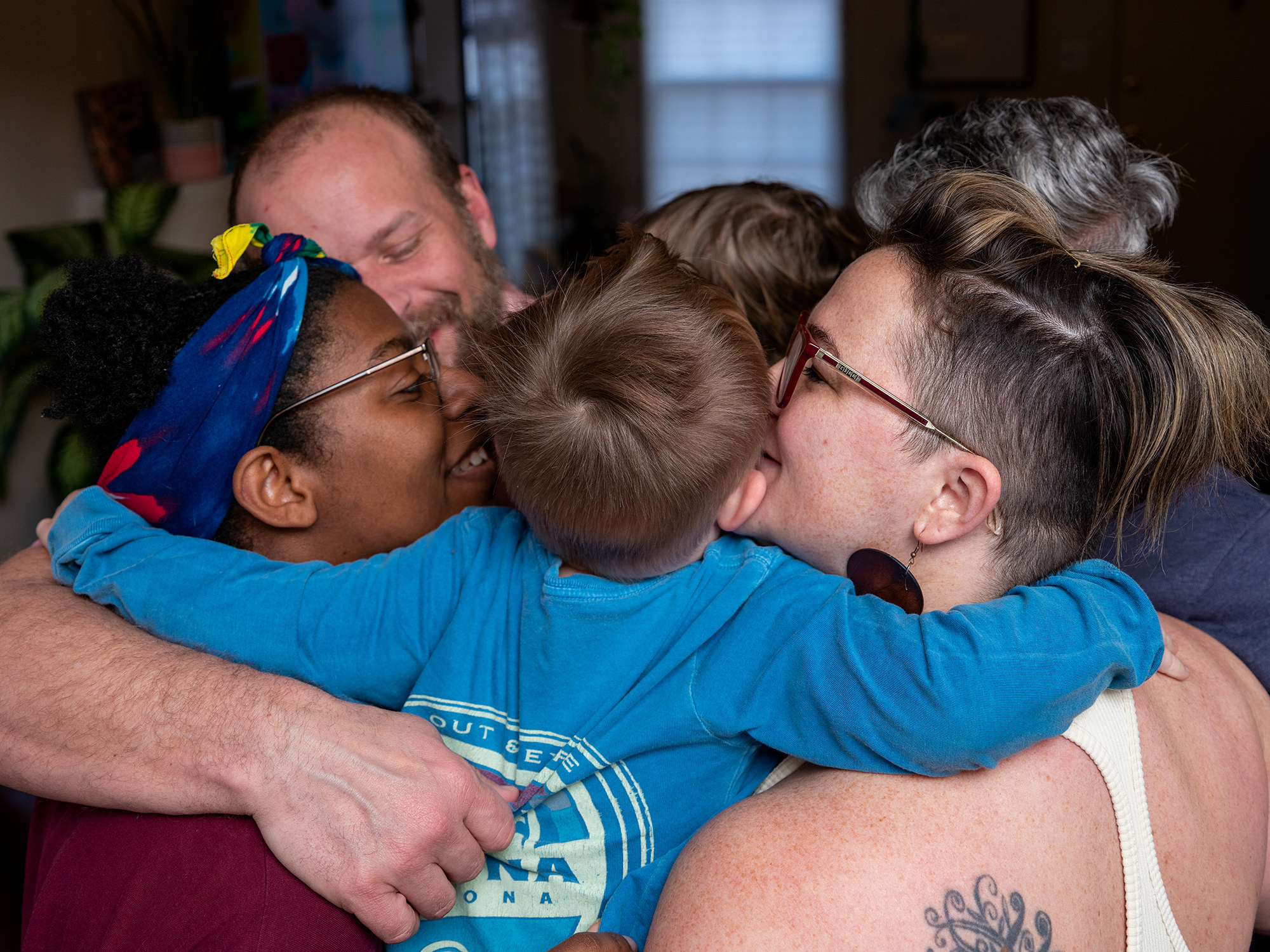
They emphasized the importance of having conversations about finances while everyone is still “out of their minds in love.” Izenson guides people through questions about how they want to think about their incomes and expenses as a unified household, what the process around owning property together might look like, and how decisions around money will be made should a sudden inheritance or financial boon present itself.
“A lot of these questions are things that we would have to answer eventually anyway, and so I think of it as a gift to your future self or to your future loved ones to answer these questions now, while everything’s fine and everyone’s feeling great, rather than putting it off until you’re already in crisis,” Izenson said.
But while Izenson works primarily with queer folks who are often trying to navigate the legal system outside of marriage, they believe that the work they help people do is actually work that everyone should do.
“If you have a normative relationship with [your body] or sex or relationships, you can kind of skate over this stuff and get away with not doing it in a way that you really can’t if you don’t have that normative relationship,” they said.
Izenson also affirmed that, for people in nontraditional relationship structures, financial planning really can be quite romantic, just as I had imagined it when I was younger. They said that folks who are looking to legalize financial agreements often hold a signing meeting that looks like a ceremony.
“Oftentimes the signing meetings are very sweet events because it kind of fulfills the same function as a wedding,” they said. “That’s one of my favorite parts of my job, is these moments when we’ve created the thing that is the manifestation of our promises to each other, and now we get to celebrate.” ●
